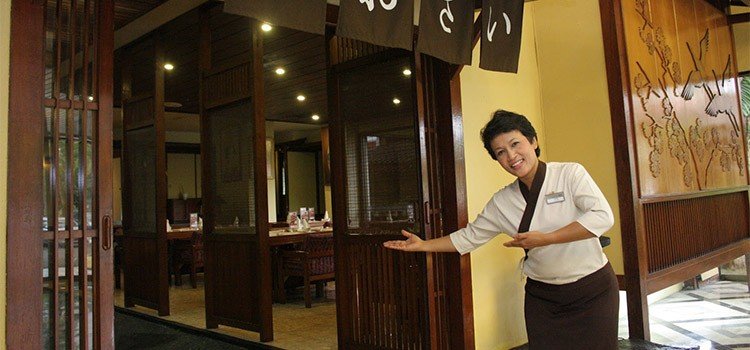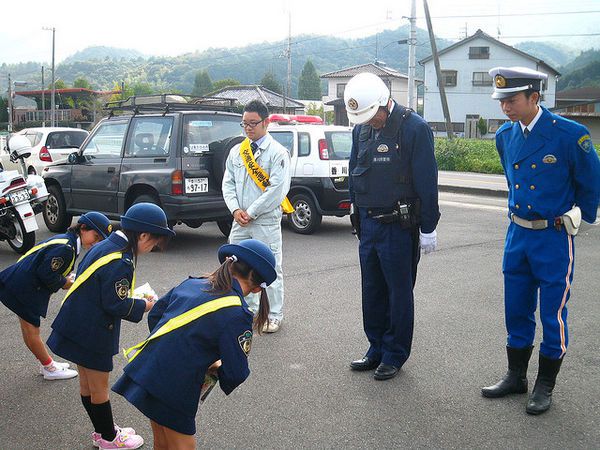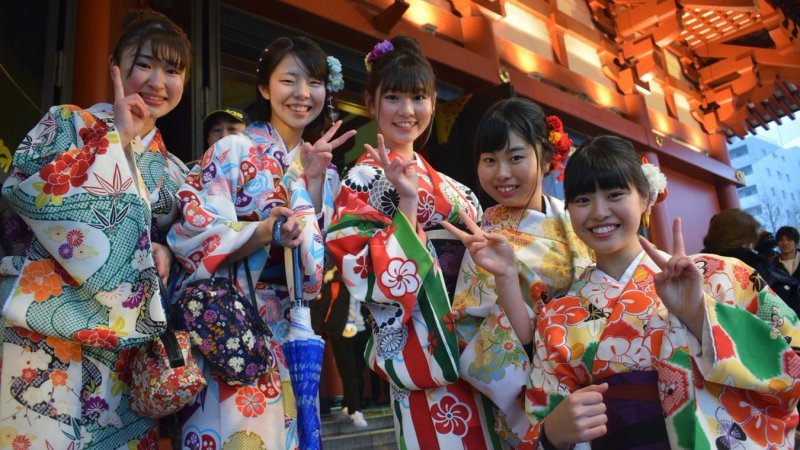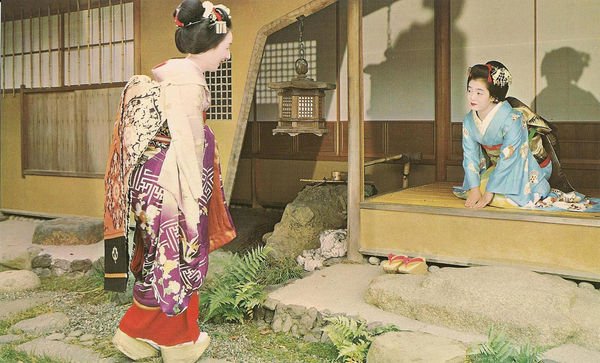"From an early age, the Japanese strive to have education and hospitality as a philosophy of life, a habit rooted in Japanese culture and society, and this culture is called" Omotenashi.
In today's article we are going to talk about this Japanese hospitality that impresses people all over the world. Let's examine and understand all the meanings behind the word hospitality.
Índice de Conteúdo
Meaning of OMOTENASHI
Omotenashi It is a very popular phrase that can be translated as hospitality in Japanese, but its meanings and concept go far beyond that. It refers to education, politeness, harmony, and peace.
The expression Omotenashi is written "[お持て成し] or [御持て成し]" which can be literally translated as hospitality, reception, treatment, service and entertainment. In addition to these meanings, this expression indicates "to do everything possible".
Let's examine the meaning of each ideogram:
- 御 - honorific of polite, humble, honorable;
- 持て - Verb that means to be able, to endure, to receive;
- Ideogram - Hold, have;
- 成し - Verb - carry out, finish, fulfill, be able to, build;
- 成 - Ideogram - transform, grow, become;

The origin of omotenashi
The origin of this expression is well unknown, some claim that it originated from the expression motenasu [持て成す] which uses the same ideograms, but means "entertain and welcome". Others claim that nashi [無し] gives to understand a Hospitality without Superficiality.
According to some ancient records, the phrase mono wo motte nashitogeru [モノを持って成し遂げる] gave rise to hospitality currently used. This translated phrase means "realize with thing", which doesn't make any sense in Portuguese.
But philosophically, it means that we must welcome the visitor or customer in the best possible way, without ulterior motives and with a pure heart.
The word mono in japanese it means thing, but in that sentence it was written exactly in katakana to refer not just to literal things, but invisible things like feelings.

The Japanese are taught from childhood to take care of each other and act with etiquette, hospitality and politeness. Much of Japanese etiquette has its origins in the formal rituals of tea ceremonies and martial arts.
The delicacy and compassion were central values of bushido (Way of the Warrior), the samurai code of ethics. Today, the concept of hospitality is mainly adopted in business management.
What is involved in Omotenashi?
Omotenashi it involves treating your guest, client or neighbor in the best possible way. It's like the golden rule that says "Treat others as you would like to be treated". And all this without expecting anything in return or with ulterior motives.
All this hospitality is done without fanfare and with a lot of discretion, in a silent, delicate and subtle way. It is a feeling that involves humility, honesty, friendship and love.
Despite Japan having problems with social classes, in omotenashi there is no distinction between host and guest, or attendant and customer, both are treated as equals, with mutual respect.
Involves helping with a smile, empathy, and wholehearted kindness. It is because of this kindness that Japan has the reputation of being the most polite country in the world. Even though it may seem impossible for everyone to practice omotenashi, it's worth remembering that Kindness attracts kindness! Sometimes even the mafia practices omotenashi.
Omotenashi also involves positive thinking, the person doesn't see faults or problems of others, he doesn't try to meddle in other people's lives, he doesn't think about things like revenge, nor is he trying to argue and create strife.

The person who wants to have a humble, honest and hospitable lifestyle should avoid thinking and focusing on negative things, clearing his mind and seeing only positive things. Since it is impossible to act and treat all goods, knowing that all have defects, flaws and imperfection.
Unfortunately, some people follow omotenashi more for the discipline than for education. Some companies and stores have written and precise rules describing how the host should serve and comport themselves in front of the customer.
The real omotenashi involves treating people well, without needing rules, of course they are vital to teach and ingrain politeness and hospitality in people, especially children.

The article is still halfway through, but we recommend also reading:
Examples of Omotenashi
Below we will see some aspects of Japan and its culture that show Omotenashi:
- Use surgical masks to avoid infecting others;
- Give your neighbors soap boxes before starting work;
- the practice of to-bow and use the polite language;
- Apologize for anything, even if it is not your fault;
- Japanese people do not accept tips.
- Cleanliness, do not throw garbage in the streets;
- Punctuality, including public transport;
- Try to help even if you don't have the capacity;
- Find a wallet and take it to the police;
- Taxi doors opening by themselves;
- The toilet seat lifts up on its own;
- Signs made cute and sometimes apologetic;
- Children clean schools;
- Beat cigarette ash in your hand and put it in your pocket;
- Accessibility for people with disabilities in Japan;
- The art and appearance of Japanese cuisine;
Of course, not everything is wonderful, not all people are the same, this means that not all Japanese people practice this philosophy and lifestyle.
Understand that everything is relative and that there will always be good and bad people anywhere, think about that before making nonsense comments. What matters is everyone doing their part and practicing it. hospitality.
Hope you enjoyed the article. If you liked it, share it and leave your comments. Do you know another point that serves as an example to show the culture of hospitality?








